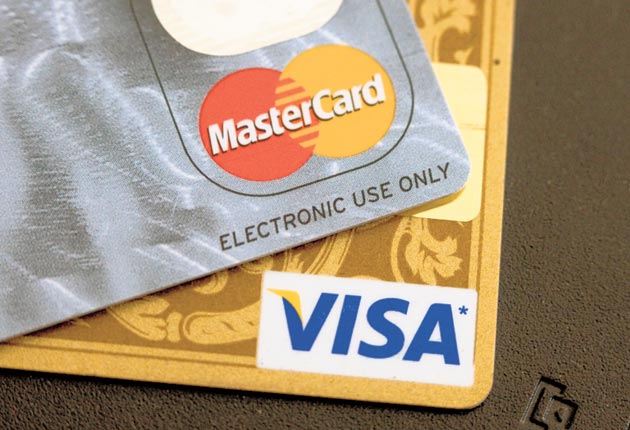MasterCard and Visa settle antitrust case as AmEx fights US lawsuit

American Express promised to fight federal accusations of anti-competitive behaviour in the market for credit card payments, even as its bigger rivals Visa and MasterCard both agreed to settle with the US Department of Justice.
All three credit card companies came under scrutiny after complaints from retailers and other merchants, from whom the trio take a cut of all in-store card payments.
The settlement agreed by Visa and MasterCard will allow retailers to offer discounts to customers who choose to pay using cards that have the lowest fees. Currently, credit card payment firms take a bigger cut of some cards, such as those that offer customer rewards, than they do of others, but their terms and conditions require retailers to accept all of them.
Visa and MasterCard said they already allowed flexibility to merchants. The justice department agreed to drop a civil antitrust suit against the companies in return for guarantees on their future behaviour, and neither will pay a financial penalty.
AmEx, though, said it would not sign up to new rules. "We have no intention of settling the case," said the chief executive, Kenneth Chenault. "We will defend our own ability to negotiate freely with merchants."
The company said Visa and MasterCard were entrenched as market leaders, and their settlement would only increase their dominance of the electronic payments system.
The Attorney General, Eric Holder, said the payment firms and card issuing banks reaped $35bn (£22bn) in fees in the US in 2009 alone. The settlement would increase choices for merchants and customers, and ultimately put money back into consumers' pockets, he added. "For example, if you use a preferred, lower-cost credit card, an airline could offer you more miles or a merchant could provide you with a rebate," he said.
Subscribe to Independent Premium to bookmark this article
Want to bookmark your favourite articles and stories to read or reference later? Start your Independent Premium subscription today.

Join our commenting forum
Join thought-provoking conversations, follow other Independent readers and see their replies